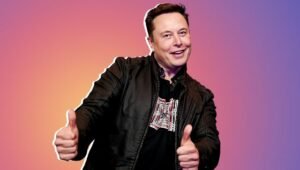Elon Musk’s unexpected trip to China has stirred up much speculation as Tesla navigates a challenging period marked by regulatory issues, financial setbacks, and stiff competition.

Musk’s decision to bypass India, citing pressing Tesla commitments, highlights the turbulent times the EV company is going through.
Tesla’s stock has plummeted by nearly a third since January, and worldwide vehicle deliveries are sharply declining for the first time in almost four years.
However, there are some solid reasons that indicate Musk’s visit to China may not have had that big of an impact on Tesla’s global ambitions. The visit may not have been as fruitful as Musk and his team at Tesla would have believed it to be.
Will Tesla-Baidu’s expanded partnership mean anything?
During Musk’s meeting with Chinese Premier Li Qiang, reports surfaced of a partnership granting Tesla access to Baidu’s mapping license for data collection on China’s public roads.
This development is being hailed as a “watershed moment” by analysts. It clears regulatory hurdles for Tesla’s FSD in China, and as a result, Tesla’s stock value has shot up by almost 15 percent.
However, some serious doubts are emerging now about how exactly this partnership would work and prove beneficial to Tesla.
Contrary to some media claims, the partnership does not authorize Tesla to introduce driverless cars in China or anywhere else. Tesla will still have to wait for China to amend its traffic laws and, more importantly, its AI laws.
Then, there are concerns over Tesla’s data security. Reports claim that Tesla can transfer data collected by Tesla cars from China to other countries. That is highly improbable, as Tesla has partnered with Baidu, which has to share all its data with the CCP. The CCP will not allow Tesla to take the data out of its border, especially considering that most of Tesla’s software development is in the US.
Another major reason why this deal may not be that fruitful for Tesla is that details about how much access Tesla will have to the data are also scarce.
Junheng Li, CEO of JL Warren Capital, highlighted the potential national security implications of such data transfer, suggesting that Baidu retains control over the collected data. Despite these complexities, Tesla’s stock surged following news of the extended collaboration with Baidu.
However, skepticism remains to be expressed about the strategic significance of FSD in China, given the rapid advancements in Chinese EV technology.
Tesla’s Autopilot vs Autopilot in Chinese EVs
Domestic competitors like Xpeng, Nio, and Li Auto are offering driving assistance features that are far superior to Tesla’s by using lidar sensors. Lidar, or Light Detection and Ranging, is a scaling and measuring method that uses light in the form of a pulsed laser to measure distances or the depth between the source and an object. Think of it as sonar, but with lights instead of sound.
Elon Musk has been very vocal in opposing Lidar and has previously dismissed the technology. Mind you, back when Tesla was experimenting with Lidar, it wasn’t as refined as it is today, nor was it as cheap as it is now.
Tesla’s challenges extend beyond technological competition. Price cuts in China aim to revive declining sales, reflecting the urgency to maintain market share amid fierce competition.
Mark Rainford, owner of Inside China Auto, characterized Musk’s China visit as a sign of “desperation” amid declining Tesla sales. Rainford cautioned that Tesla’s dominance in China faces significant risks from competitors boasting innovative product offerings.
A desperate Tesla?
Despite its first Gigafactory in Shanghai, Tesla faces a tech gap compared to Chinese rivals. As Musk considers the landscape at the Beijing Motor Show, where Tesla is notably absent, questions arise about the company’s relevance in China’s tech-savvy market.
Similarly, due to regulatory differences, Tesla’s plans for a European Cybertruck tour face hurdles. Tesla’s lead on vehicle engineering acknowledged challenges meeting EU safety standards, casting doubt on the Cybertruck’s prospects in the European market.
Among Tesla’s ongoing challenges, we also see delays in rolling out cars with genuine driverless capabilities, prompting frustration among investors. Despite marketing efforts, technologies like the now heavily discounted Full Self-Driving (FSD) feature are still not at the level where Musk wants it to be
As Tesla grapples with regulatory hurdles, market challenges, and technological competition, Musk’s visit to China shows the company’s sometimes desperate efforts to navigate complex international landscapes while striving to maintain its competitive edge.










